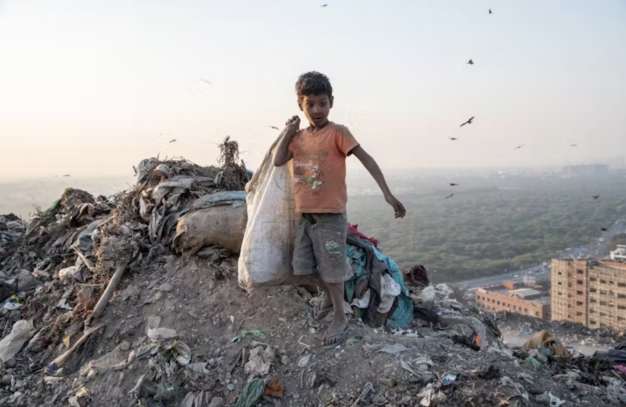
Six ways children’s rights can help create a cleaner, healthier planet for all
A concentration of greenhouse gases, rising sea levels, and warming, acidifying oceans – these represent a clear threat to children’s health, and even their right to life. The UN World Meteorological Organisation warned recently of alarming, continuing trends in these four key indicators of climate change, which will severely impact children in decades to come.
The Committee on the Rights of the Child is composed of 18 experts, it monitors compliance with the Convention on the Rights of the Child in each of the 196 states that signed it. It does this by collecting reports from UNICEF (the United Nations Children’s Fund), governments, and nonprofit organisations, which it then uses to make recommendations for improvement.
It also prepares general comments on issues related to children’s and adolescents’ rights. In these statements, it makes a point of taking children’s views into careful consideration, says Carlos Villagrasa Alcaide of the University of Barcelona.
‘815 million children exposed to lead pollution’
Because of its potential to cause social breakdown among communities and families, UNICEF has warned that climate change constitutes a form of structural violence against all children. They make reference to the effects of natural disasters, environmental degradation and loss of biodiversity, which in turn have terrible consequences for agriculture, access to clean water and nutrition. Ultimately, these impacts constitute a violation of the right to health.
In fact, their damning August 2021 report stated that dramatic figures have been reached: 815 million children exposed to lead pollution, 820 million to heat waves, 920 million to water shortages and 1 billion to high levels of air pollution.
For its part, the World Health Organisation had already sounded the alarm in 2017 that 1.7 million children die annually as a result of preventable environmental impacts. This makes it the leading cause of early childhood mortality, accounting for more than a quarter of deaths in children under the age of five.
Input from over 16,000 children
In light of these reports, the Committee on the Rights of the Child decided to draft a general comment on children’s rights and the environment, with a special focus on climate change, entitled The UN Committee on the Rights of the Child commits to a new General Comment on Children’s Rights and the Environment with a Special Focus on Climate Change. Over two consultation periods – 31 March to 30 June 2022 and 15 November 2022 to 15 February 2023 – they received 16,331 direct contributions from children and adolescents from 121 countries. These demands were then distilled into six global demands:
- * Provide all children with access to a clean and healthy environment.
- * Listen to children and take their opinions seriously. Respect their role as key players in environmental action.
- * Make the actions of governments and companies clear and transparent.
- * Encourage international cooperation.
- * Expand and improve awareness and environmental education.
- * Create spaces for participation, to share ideas and find solutions.
This document insists on shared responsibility. It makes strong emphasis on the need to create universal standards so that governments can uphold children’s rights that which are being are violated by the climate emergency, the collapse of biodiversity and widespread water, air and soil pollution. When all is said and done, children have rights just like all other humans. They are drivers of social participation and have a very active, positive part to play in the environmental transformation.
It is imperative that states introduce laws and guidelines with enough funding and transparency to restore and protect these rights against abuse by external forces, including by private companies. They must also ensure the recovery and conservation of biodiversity.
‘A violation of the right to life’
Children have a right to a clean environment, and states have an obligation to guarantee this right. Not only for those already in the world, but also for the future inhabitants of the planet, who deserve a world where their rights are truly upheld.![]()
Carlos Villagrasa Alcaide, Profesor titular de Derecho Civil, Universitat de Barcelona
This article is republished from The Conversation under a Creative Commons license. Read the original article.




